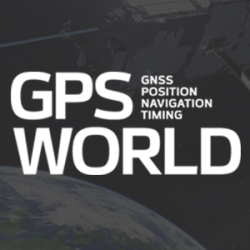
Seen & Heard: Earthquakes and high-speed chases
May 31, 2023
“Seen & Heard” is a monthly feature of GPS World magazine, traveling the world to capture interesting and […]
Read More

“Seen & Heard” is a monthly feature of GPS World magazine, traveling the world to capture interesting and […]

Hexagon’s Safety, Infrastructure & Geospatial division announced the addition of artificial intelligence to HxGN Connect, Hexagon’s real-time incident center as a service solution.

PCTEL has launched its Trooper TRP-20INT platform, featuring models with a purpose-designed footprint to allow seamless installation on […]

Auterion and Impossible Aerospace are collaborating to bring to market the US-1 UAV, which has a two-hour flight time. Auterion […]

UASTrakker LLC is offering a new guidance system to enable first responders and maritime rescue units to use fully autonomous […]

Thousands of high-speed pursuits by law enforcement take place in the U.S. every year, which can endanger other […]
New technology from product development firm Cambridge Consultants can accurately detect someone’s location indoors when GPS drops out. […]
Follow Us